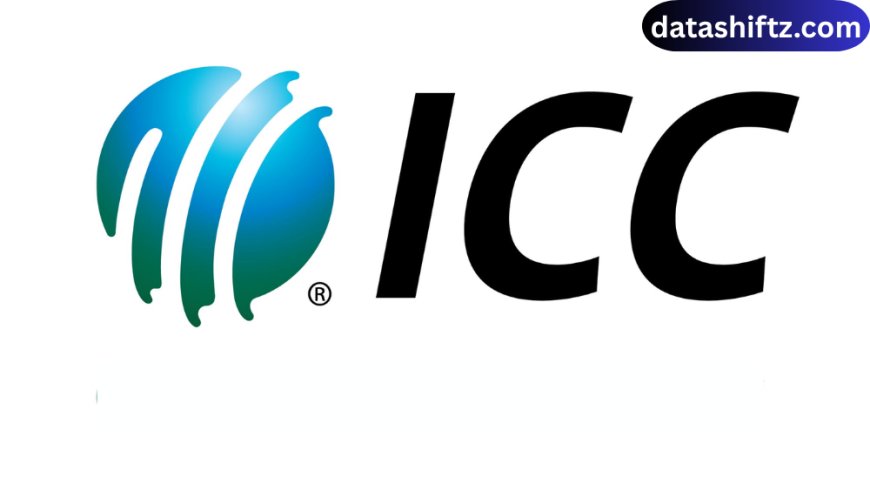ICC: Governing the World of Cricket

Introduction
The International Cricket Council (ICC) is the global governing body for cricket, responsible for overseeing the rules, tournaments, and development of the sport worldwide. Established in 1909 as the Imperial Cricket Conference and later renamed the ICC in 1989, it plays a crucial role in promoting cricket across continents, organizing major tournaments, and maintaining the integrity and spirit of the game.
The ICC’s influence extends beyond administration—it shapes the future of cricket through rankings, regulations, and the development of new formats, ensuring that the sport remains competitive, entertaining, and globally relevant. This article explores the history, structure, tournaments, and impact of the ICC.
History and Evolution of the ICC
Origins and Founding
The ICC was originally formed as the Imperial Cricket Conference in 1909, with three founding members: England, Australia, and South Africa. The primary aim was to regulate international cricket matches and ensure fair competition among member nations.
Over the years, the ICC expanded to include associate and affiliate members, increasing its reach to over 100 countries. This expansion helped globalize cricket, bringing nations like Afghanistan, Ireland, and Nepal into the international fold.
Key Milestones
-
1965: Headquarters established in London.
-
1989: Renamed as International Cricket Council to reflect its global role.
-
1992: First Cricket World Cup with colored clothing and day-night matches.
-
2000s: Expansion of T20 cricket and the launch of the ICC T20 World Cup.
-
2020s: ICC continues to innovate with Test Championship leagues and expanded global tournaments.
Structure and Membership
Member Categories
The ICC has three categories of membership:
| Membership Type | Description | Number of Members |
|---|---|---|
| Full Members | Nations eligible to play Test cricket | 12 |
| Associate Members | Countries where cricket is established but not yet full Test-playing nations | 96 |
| Affiliate Members | Countries in early stages of cricket development | 0 (merged with Associates in 2017) |
Governing Body
-
President: Serves as the ceremonial head of the ICC.
-
Chairman: Oversees executive decisions and operations.
-
CEO: Responsible for day-to-day administration.
-
Council Members: Representatives from Full Members and some Associate Members.
The ICC also maintains committees for ethics, cricket operations, finance, and development to ensure smooth governance.
Major ICC Tournaments
ICC Cricket World Cup
-
The most prestigious 50-over tournament, held every four years.
-
Notable Winners: Australia (5), India (3), West Indies (2).
-
Introduced day-night matches, colored jerseys, and white balls in the 1990s.
ICC T20 World Cup
-
A short-format tournament aimed at increasing the global appeal of cricket.
-
Popularized by explosive batting and innovative strategies.
-
Notable Winners: West Indies (2), England (1), India (1).
ICC World Test Championship
-
Introduced in 2019 to bring context to Test cricket.
-
Involves top nine Test-playing nations competing over two years.
-
Enhances competitiveness and keeps Test cricket relevant in the modern era.
ICC Rankings
-
ICC maintains team and player rankings across Tests, ODIs, and T20Is.
-
Rankings influence tournament seedings and fixtures.
-
Provides a global benchmark for player performance.
ICC Major Tournaments Overview
| Tournament | Format | Frequency | Notable Feature |
|---|---|---|---|
| ICC Cricket World Cup | ODI | Every 4 years | 50-over format, most prestigious |
| ICC T20 World Cup | T20 | Every 2-4 years | Explosive short-format cricket |
| ICC World Test Championship | Test | 2-year cycle | Adds context to Test matches |
| ICC Champions Trophy | ODI | Every 4 years | Features top-ranked teams |
ICC’s Contributions to Global Cricket
-
Global Development – Promotes cricket in non-traditional regions like the USA, China, and Africa.
-
Tournament Organization – Manages major international events for all formats.
-
Rule Standardization – Ensures uniformity in playing conditions worldwide.
-
Player Rankings – Provides official performance statistics for teams and players.
-
Financial Assistance – Supports emerging cricket nations with funding and infrastructure.
-
Anti-Corruption Measures – Maintains integrity through the Anti-Corruption Unit.
-
Technology Integration – Introduced DRS, LED stumps, and live tracking systems.
-
Promotion of Women’s Cricket – Organizes ICC Women’s World Cups and T20 tournaments.
-
Sustainability Initiatives – Encourages eco-friendly practices in cricket events.
-
Fan Engagement – Expands cricket’s popularity through media, digital platforms, and grassroots programs.
Conclusion
The ICC is the backbone of international cricket, ensuring the sport remains competitive, fair, and globally recognized. From its early days as the Imperial Cricket Conference to becoming a global authority overseeing hundreds of members, the ICC has successfully balanced tradition with innovation.
Through tournaments like the Cricket World Cup, T20 World Cup, and World Test Championship, the ICC has provided platforms for legends to emerge and for nations to shine on the global stage. Its contribution to rankings, player development, governance, and global outreach continues to shape cricket’s future.
As cricket evolves with new formats, technologies, and fan engagement strategies, the ICC remains central to the sport, ensuring that cricket not only survives but thrives worldwide.






























